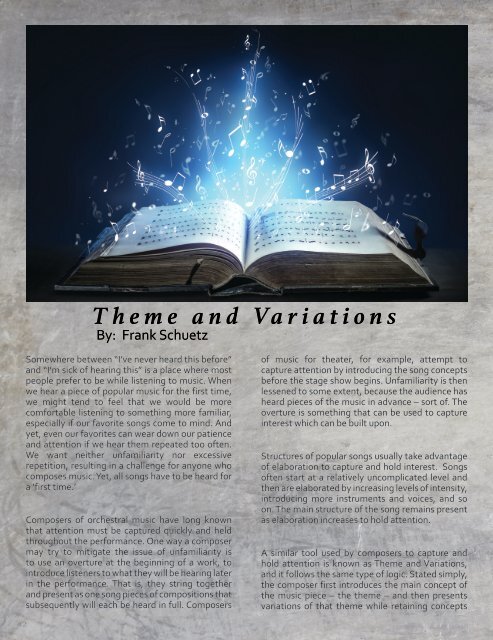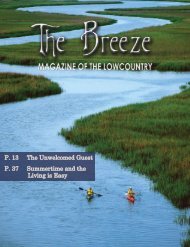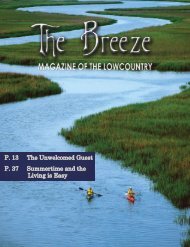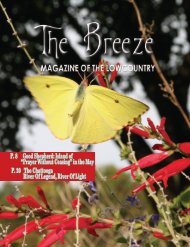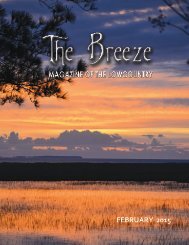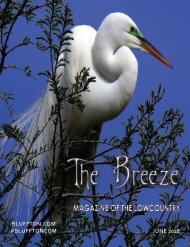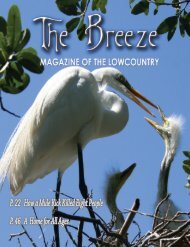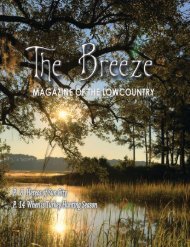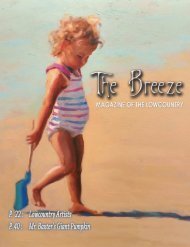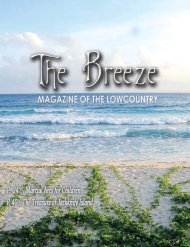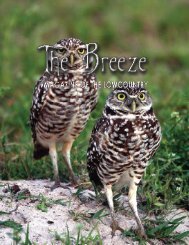The Breeze February 2020
You also want an ePaper? Increase the reach of your titles
YUMPU automatically turns print PDFs into web optimized ePapers that Google loves.
<strong>The</strong>me and Variations<br />
By: Frank Schuetz<br />
Somewhere between “I’ve never heard this before”<br />
and “I’m sick of hearing this” is a place where most<br />
people prefer to be while listening to music. When<br />
we hear a piece of popular music for the first time,<br />
we might tend to feel that we would be more<br />
comfortable listening to something more familiar,<br />
especially if our favorite songs come to mind. And<br />
yet, even our favorites can wear down our patience<br />
and attention if we hear them repeated too often.<br />
We want neither unfamiliarity nor excessive<br />
repetition, resulting in a challenge for anyone who<br />
composes music. Yet, all songs have to be heard for<br />
a ‘first time.’<br />
Composers of orchestral music have long known<br />
that attention must be captured quickly and held<br />
throughout the performance. One way a composer<br />
may try to mitigate the issue of unfamiliarity is<br />
to use an overture at the beginning of a work, to<br />
introduce listeners to what they will be hearing later<br />
in the performance. That is, they string together<br />
and present as one song pieces of compositions that<br />
subsequently will each be heard in full. Composers<br />
of music for theater, for example, attempt to<br />
capture attention by introducing the song concepts<br />
before the stage show begins. Unfamiliarity is then<br />
lessened to some extent, because the audience has<br />
heard pieces of the music in advance – sort of. <strong>The</strong><br />
overture is something that can be used to capture<br />
interest which can be built upon.<br />
Structures of popular songs usually take advantage<br />
of elaboration to capture and hold interest. Songs<br />
often start at a relatively uncomplicated level and<br />
then are elaborated by increasing levels of intensity,<br />
introducing more instruments and voices, and so<br />
on. <strong>The</strong> main structure of the song remains present<br />
as elaboration increases to hold attention.<br />
A similar tool used by composers to capture and<br />
hold attention is known as <strong>The</strong>me and Variations,<br />
and it follows the same type of logic. Stated simply,<br />
the composer first introduces the main concept of<br />
the music piece – the theme – and then presents<br />
variations of that theme while retaining concepts<br />
42


